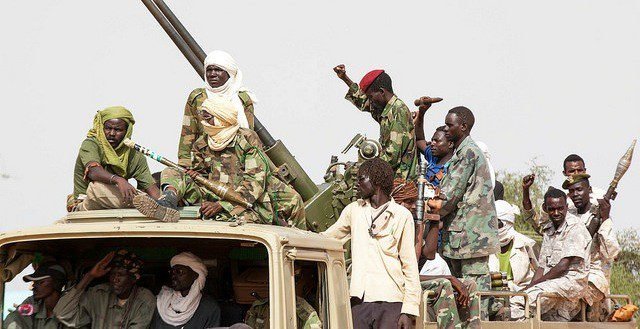Geneva: The World Health Organization (WHO) said that 413 people have died in the current Sudan conflict, while the UN children’s agency said children are paying a high price, with at least nine reportedly killed in the fighting and more than 50 badly injured, Turkish News Agency Anadolu reported.
WHO spokesperson Margaret Harris told in a UN press conference that according to figures from the government in Sudan, 413 people have died and 3,551 injured in the conflict.
The Sudan fighting is part of ongoing clashes between the country’s army and the paramilitary Rapid Support Forces (RSF).
She said there had been 11 verified attacks on health facilities, including 10 since April 15.
“According to the Ministry of Health in Sudan, the number of health facilities that have stopped working is 20. And also, according to Ministry of Health numbers, the number of health facilities at risk of stopping is 12,” said Harris.
“So this means that all those people who need care, and this is not only the people who’ve been injured hearings, terrible fighting, but that the people who were needing treatment before and continuing treatment,” are impacted, said the WHO spokesperson, Anadolu reported.
At the same press conference, UNICEF spokesperson James Elder said, “Clearly, as ever, the fighting takes a devastating toll on children.
“We now have reports of at least nine children killed and at least 50 injured. Those numbers will continue to rise as long as fighting continues,” he added.
Elder said large numbers of people are trapped and do not have access to electricity, Anadolu reported.
“They’re terrified of running out of food, water, and medicines,” he said, adding, “One of our grave concerns is around hospitals that have come under fire.”
Elder said Sudan already had one of the world’s highest malnutrition rates among children.
“And we’ve now got a situation where critical life-saving support for around 50,000 children is at risk,” said the UNICEF spokesperson.
The fighting also puts at risk “the cold chain” in Sudan, including over USD 40 million worth of vaccines and insulin, due to breaks in the power supply and the inability to restock generators with fuel, said Elder.
UNICEF also has reports of children sheltering in schools and care centres while fighting rages around them and of children’s hospitals forced to evacuate as shelling moves closer, Anadolu reported.
Elder said before the escalation in violence in Sudan, the humanitarian needs of children in the country were high, with three-quarters of children estimated to live in extreme poverty.
At the same time, 11.5 million children and community members needed emergency water and sanitation services, 7 million children were out of school, and more than 600,000 children suffered from severe acute malnutrition.
Fighting erupted last Saturday between the Sudanese army and the paramilitary Rapid Support Forces (RSF) in the capital Khartoum and its surroundings, Anadolu reported.
Sudan has been without a functioning government since October 2021, when the military dismissed Prime Minister Abdalla Hamdok’s transitional government and declared a state of emergency in what political forces called a “coup.”


